In the NICU - Neonatal Care
The Unit
The neonatal unit is a part of the hospital that is specially designed for the care of new babies. Generally, the smaller and sicker babies need to spend more time in the neonatal unit than babies who are bigger and less sick.
Some neonatal units are divided into different areas, which provide different types of care for babies. The Neonatal Intensive Care Unit (NICU), High Dependency Unit (HDU) and Special Care Intensive Care Unit (SCBU) are described in the tabs below. Should you have any questions or concerns, please do not hesitate to ask a member of our team.
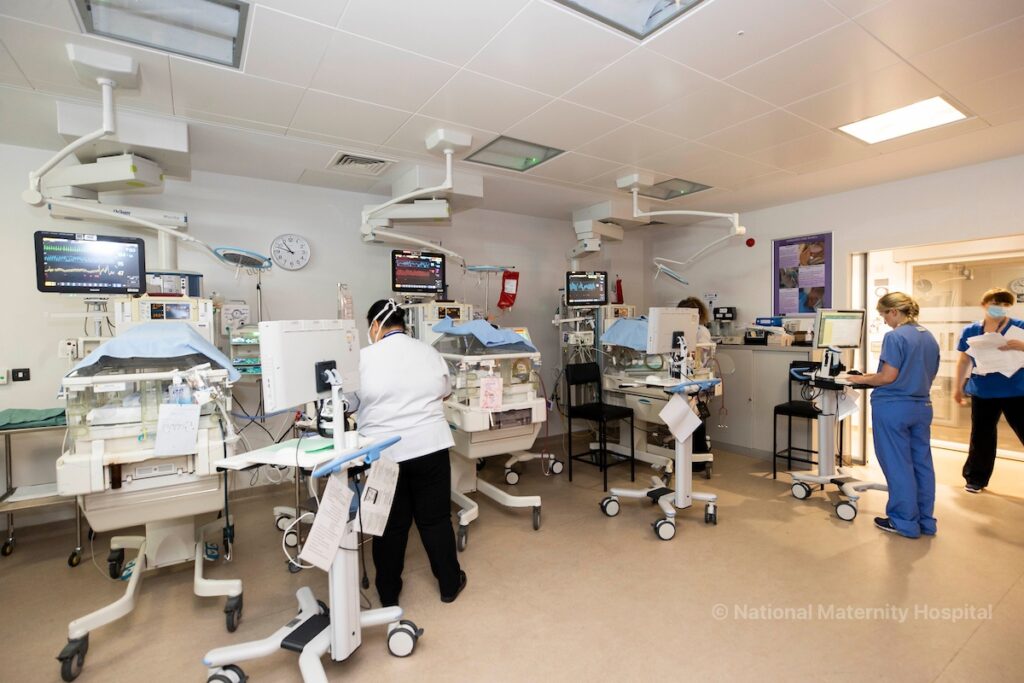
Neonatal Intensive Care Unit is where babies get the most intensive care. These are the sickest and smallest babies in the hospital. In the NICU most babies will be in incubators or on open tables, and many babies will have machines to help their breathing.
NICU can be scary for parents. Even though there is lots of equipment, it is still important to interact with your baby, and the team helping to look after your baby are happy to help you with the best ways to do this.
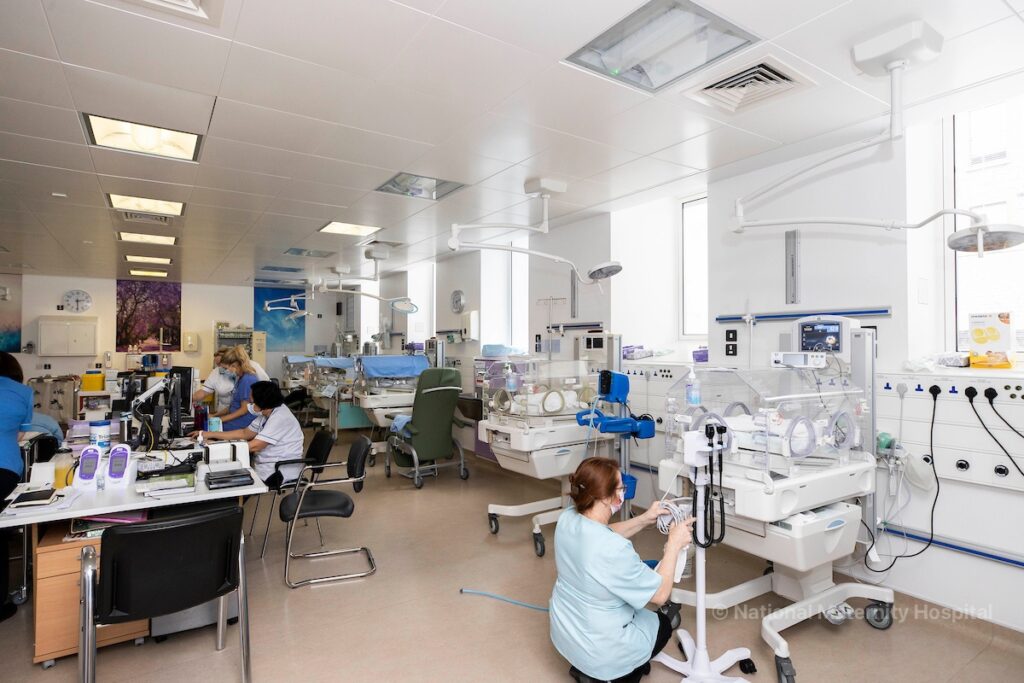 High Dependency Unit is for babies who require a high level of care and observation but less than intensive care. Some babies will be in incubators, while others may be in open cots.
High Dependency Unit is for babies who require a high level of care and observation but less than intensive care. Some babies will be in incubators, while others may be in open cots.
Babies in HDU may have recently spent time in intensive care and are getting closer to being able to go home. They will still need to be closely monitored, possibly by getting oxygen through their nose and being fed through a tube
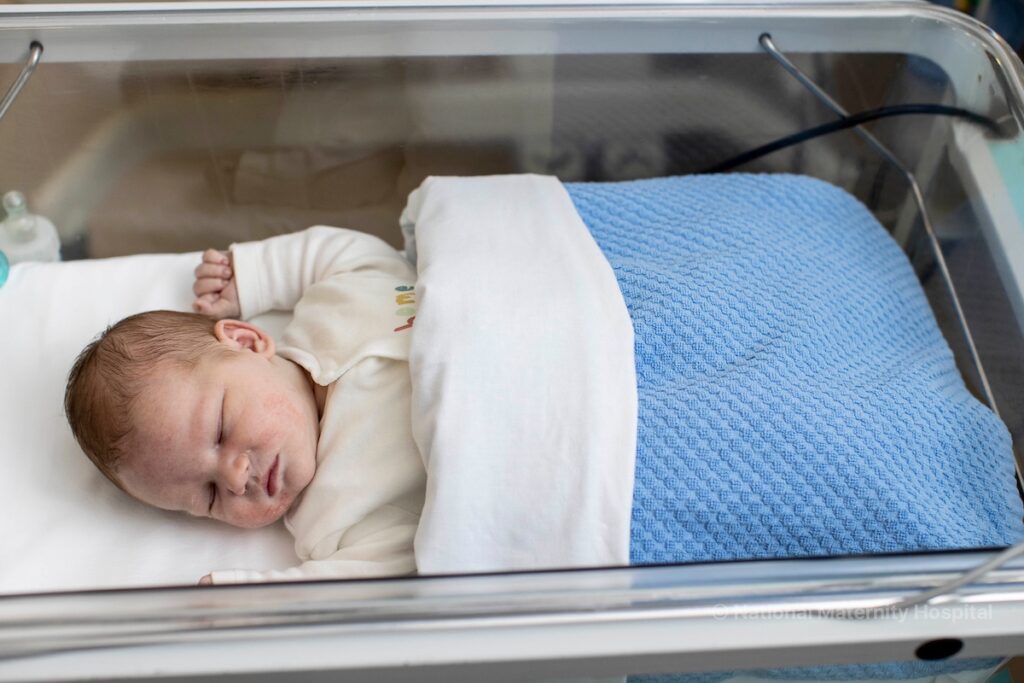 Special Care Baby Unit is for babies who require a lower intensity of care, like growing babies who are preparing for going home. Most babies will be in open cots.
Special Care Baby Unit is for babies who require a lower intensity of care, like growing babies who are preparing for going home. Most babies will be in open cots.
If your baby is in SCBU, you will be even more involved in the hands-on care of your baby, like feeding, nappy changing and bathing, to get ready to take care of your baby at home.
Incubators
Babies who are preterm or sick may have difficulty keeping their body temperature at the right level. This is because they have almost no fat for insulation, and so we have to keep small or sick babies warm.
To do this, small babies and some term babies who are unwell, are nursed in an incubator. An incubator is a specially designed cot with a clear plastic roof that keeps your baby warm. Some small babies also have the incubator kept humid (keeping the air a bit wet) to allow their skin to become like the skin of older babies. Humidity can fog up the plastic of the incubator. Because incubators are clear plastic we can closely see your baby, while being able to care for your baby at the same time.
Some babies who are close to term and are sick can be nursed on what we call an ‘open table’, which is a cot with a warmer on top of it. We can closely monitor baby on this type of cot.
When your baby is well, weighs more than 1800g (4 lbs), and can take care of their own temperature they can be moved to their own cot. Babies need to spend time in a cot before they can go home.
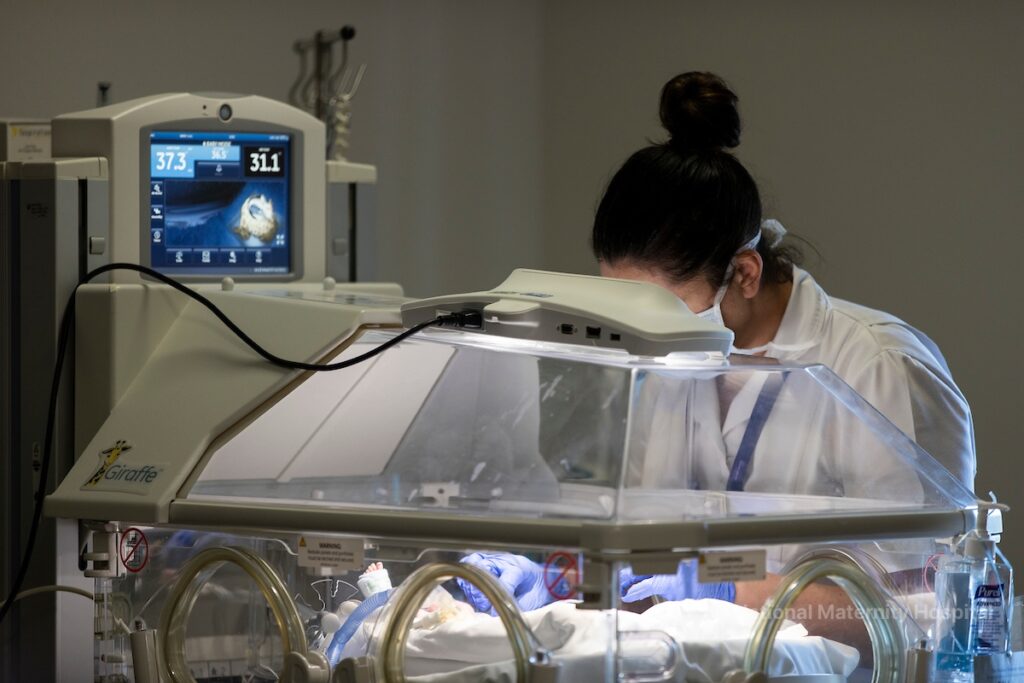
Baby in an incubator
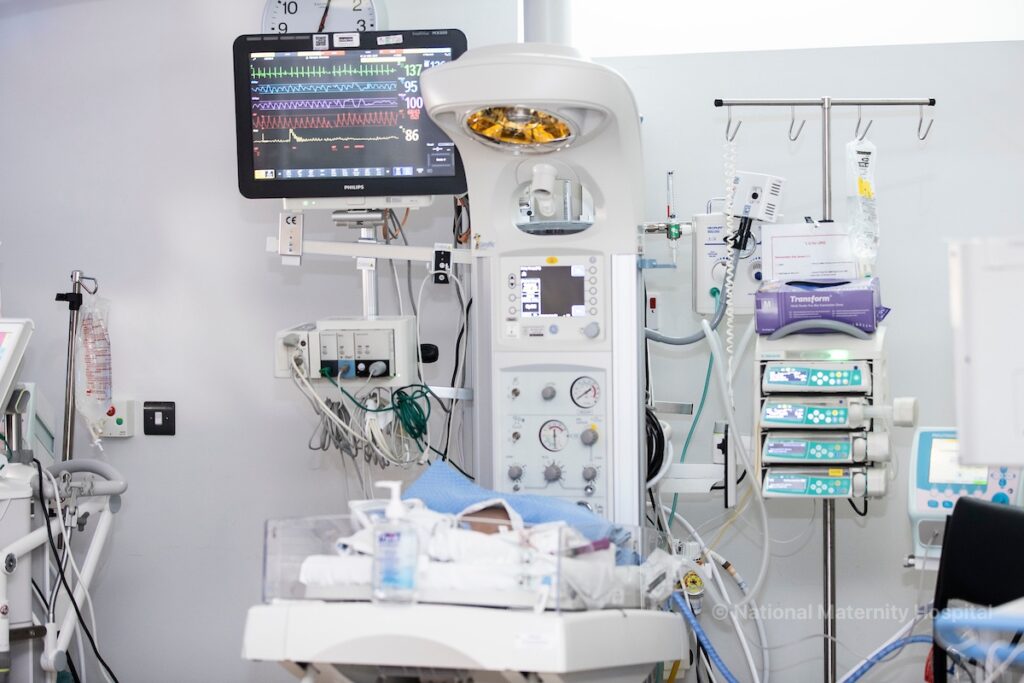
Open Table
Babies who are unwell don’t wear clothes in their incubators or on open tables, so that we can closely watch their breathing and colour.
All babies in all areas of the neonatal unit have their breathing monitored. Many babies also have their oxygen levels and their heart rates measured too. See ‘Equipment’ for further details.
Babies who are unwell don’t wear clothes in their incubators or on open tables, so that we can closely watch their breathing and colour.
All babies in all areas of the neonatal unit have their breathing monitored. Many babies also have their oxygen levels and their heart rates measured too. See ‘Equipment’ for further details.
‘Quiet Time’ in the neonatal unit
Your baby needs as much rest and sleep as possible. ‘Quiet Time’ gives babies the opportunity to rest and sleep.
Before they are born, babies sleep 80% of the time. If your baby is born early, it is important to make sure that they gets lots of sleep, so that their brain can develop properly.
Neonatal units work hard to reduce the amount of noise and activity around your baby, so that they can grow and develop. We cannot avoid some of the noise and activity but we do our best to keep the unit as quiet as possible for ‘Quiet Time’. During ‘Quiet Time’, lights are turned down, noise levels and voices are kept low and medical procedures and cares are kept to a minimum to allow your baby rest and sleep.
Nursing handover:
The neonatal nurses in our NICU work in two different shifts – a day shift and a night shift. Every time the nurse changes, the nurse working before them gives a detailed handover about your baby and their story. You may be asked to leave the neonatal unit when nursing handover is taking place in order to protect privacy.
Ward Round:
There is a ward round with the nurses, doctors and other team members every day. This is important. During the ward round, the neonatal team discusses each baby’s condition and progress and a plan is made for the baby for the day.
You may be asked to leave the neonatal unit during the ward round while other babies are being discussed in order to respect their privacy and confidentiality.

Neonatal team discussing baby’s condition
How long will my baby be in the neonatal unit?
The length of time that your baby needs to stay in the neonatal unit depends on how small, how early and how sick they are.
Many babies have conditions that can be treated easily and can be discharged back to you after a few hours or days of observation and care. On the other hand, some very preterm babies may require admission for up to 4 months or more.
As a general rule, for preterm babies the discharge time will be around the date that the baby was due to be born if they were full term.
Duration of time babies spend in the neonatal unit
-
Born before 28 weeks gestation:
3 months approximately -
Born 28–31 weeks gestation:
2 months approximately -
Born 32-34 weeks gestation:
3 weeks approximately -
Born from 35 weeks gestation:
A few hours or days - These are estimates. Some babies may stay for longer and others shorter.
